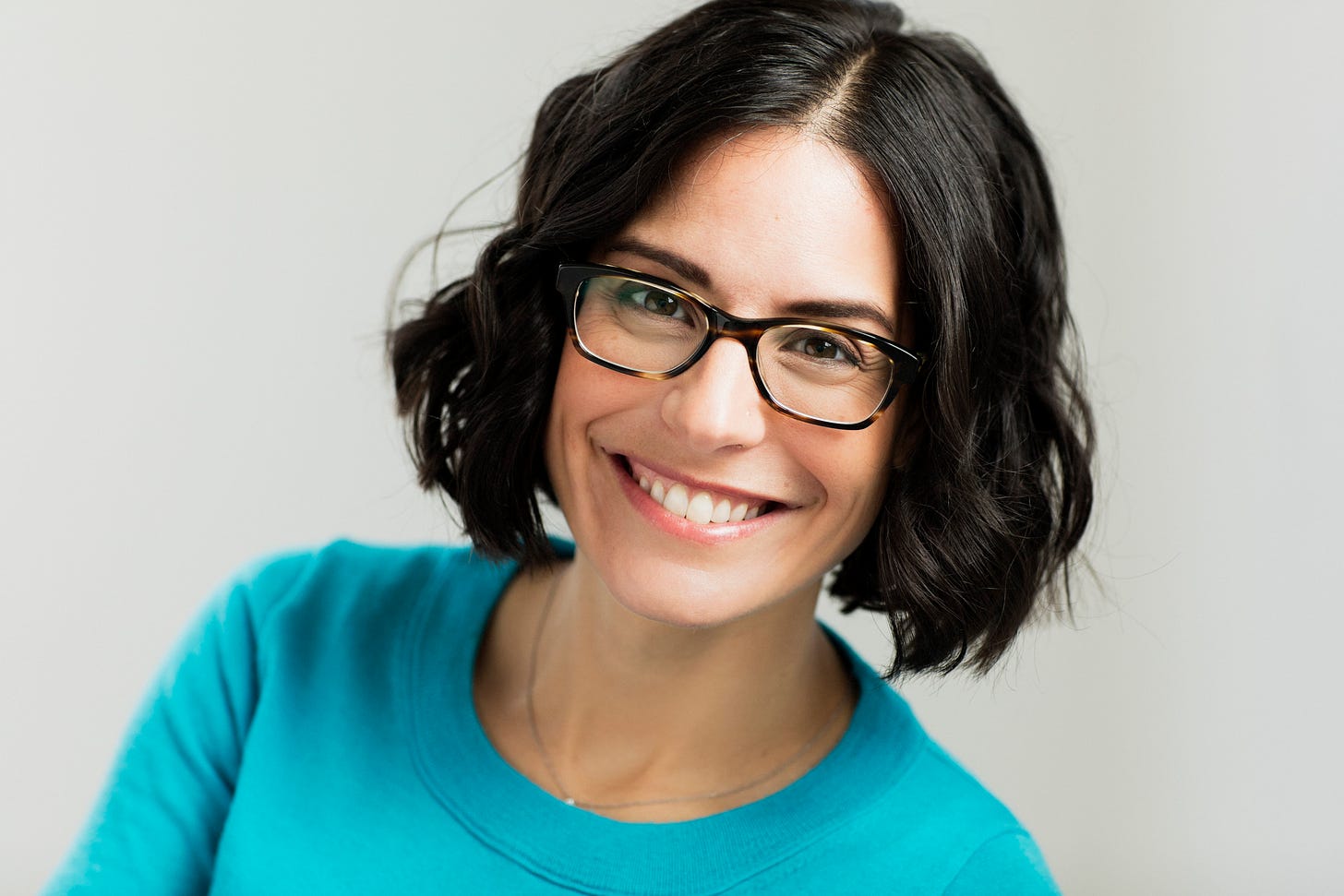The Interview: Trista Taylor
Google gave her the platform to build a volunteer-driven, internal-facing leadership initiative. Eventually, she parlayed that experience into a business of her own.
Trista is founder and CEO of Regroup, which helps innovative companies of all sizes—many of which are tech companies—build thriving organizations, leaders and teams. Connect with her on LinkedIn. —Steph

Tell us about yourself.
I'm Trista Taylor. I grew up on Whidbey Island in Puget Sound, north of Seattle, and spent my career in tech companies. I worked for Google for 11 years on the People Ops team, focusing on team effectiveness and leadership development. My favorite role at Google—because over the years, you play a lot of them—was building a community group called Team Dev, which was a global, volunteer-based network of individuals who were passionate about helping teams improve how they work together. I loved it so much I decided to leave Google and start my own company doing similar work. So to return to your question, at this point in my life, I am an entrepreneur. I'm a mom. I'm a consultant, coach, facilitator, and juggler of time and space.
What is your training and certification as a coach?
I have a master’s degree in organizational development, which is coaching-adjacent, from Pepperdine University, and I hold a coaching certification through the Hudson Institute of Coaching.
Tell us more about your previous career; how does that influence you as a coach?
I appreciate so many things about the tech industry’s culture and environment. It attracts down-to-earth people who like data and systems—the rationality and the logic of it—but also who are innovative, hopeful, and have an aspiration for what's possible. That’s exciting! It’s always new and magical. I was at Google from 2007-2019, a time in which anything felt possible and you could be very entrepreneurial in your role. As an employee, you could set your own OKRs (objectives and key results) and design how you were going to achieve them. Your boss helped remove barriers and build the runway to do the thing.
When I took on the Team Dev role, I was essentially running an internal-facing boutique consulting firm. Today, my company focuses on similar initiatives, including management and leadership development, team effectiveness and organizational development. We work with very large companies, startups of a few hundred employees, and tiny companies that are founder-led. Our work considers questions like what's the vision and strategy? Is it clear? Is it aligned? What do you want to make happen? What do your leaders, teams, or managers need to develop? It’s structure, culture, processes, and people.
As a team coach—given that I was in such an entrepreneurial role at Google—I tend to help clients see what’s possible, and feel empowered to make changes to move toward that desired vision.
Did you have an “a-ha” moment when you realized the power of the coaching model for yourself?
I was working with a coach when I was studying at the Hudson Institute, and it was eye-opening and so helpful to have someone unpack my stories with me, and reframe my anxieties or worries in a new way. At that time, my role at Google was changing and I was trying to figure out what was next for me—what would it mean to stay, and what would it mean to leave? Could I leave? I had been there for so long that my identity was tied up in the company. My coach helped me peel back the layers of the onion and I begin asking myself about the value of staying, the identity I embodied, and the identity I wanted to craft for my future.
What are you like as a coach?
I am very action-oriented. I'm a great accountability partner for someone wanting to make a change. If they’re struggling, I can help make it real. What are the barriers, real or perceived, that are getting in the way, and then what are the steps—actual, tactical steps—that people can take to make progress.
That might look like, “You know, we agreed last time you were going to do this; did you do it?” Then what did you learn? How's it going? What's next? At the end of every coaching session, there's some level of commitment or agreement to take action and move things forward. But I also hold space for failure and attempts, and what we can learn from them. Maybe someone isn’t ready to take action, and I relate. It took me two years to have the courage to leave Google.
What do you wish everyone knew about coaching?
I wish that everyone knew how valuable coaching can be, so normalizing it. I think everyone could use a coach, or benefit from coaching conversations. I was in an elevator the other day and someone was joking about having a therapist, but that shouldn’t need to be a joke. Everyone needs help once in a while, whether it’s a formal coaching program or a one-off conversation with your manager.
What is your vision for the coaching industry?
One dream, and this is just riffing, but I wish it were easier for people to find the right coach. Coaching is such a big, ambiguous field, and there are so many different kinds of coaches. A lot of it comes down to chemistry, too—do I feel safe with this person? Do I feel a connection? For example, I know the kind of coaching I like to do—and again, I am very action-oriented and focused on systems and teams—so I bring in other coaches who are more skilled at something else when needed. An example of this might be career coaching. I hope it becomes easier for coaches to specialize and clarify what they do so it’s easier to find the right clients, and for the right clients to find them.
This interview has been edited for length and clarity.





